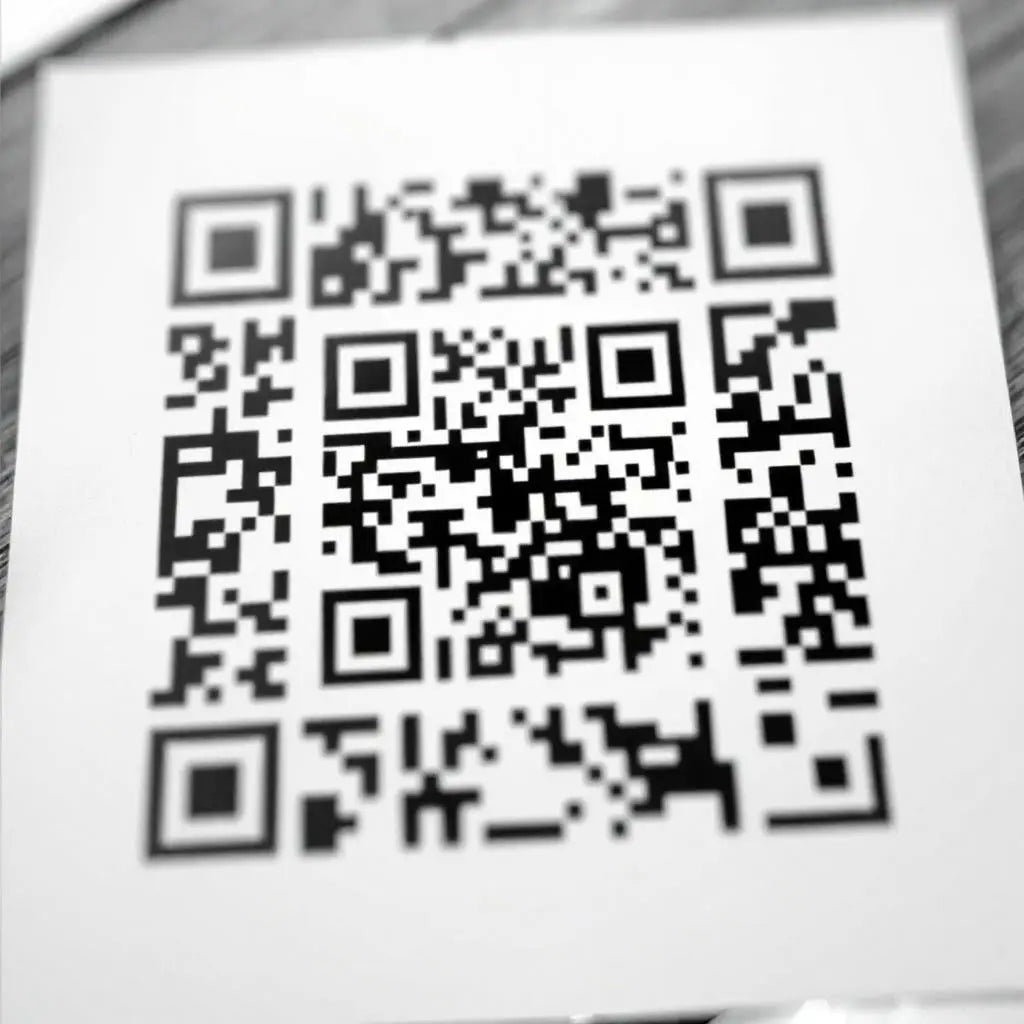QR codes are a great way to bridge the gap between physical and digital experiences, especially when displayed on large printed materials like banners, posters, or trade show displays. However, when it comes to using QR codes on a large printed display, the key question is: How big should the QR code actually be?
If the QR code is too small, people may struggle to scan it from a distance, rendering your marketing efforts ineffective. On the other hand, if it's too large, it could overpower your design, making it look awkward or detracting from other important messaging.
In this blog post, we’ll discuss the ideal QR code size for large displays, factors to consider, and tips for ensuring it’s scannable from a distance without disrupting the overall visual aesthetic of your display.
Why Size Matters for QR Codes on Large Displays
QR codes function as the gateway to more information, whether that’s your website, a promotional offer, or a product page. The key to their success lies in how easily they can be scanned by people, especially in busy, high-traffic areas.
When using QR codes on a large printed display, you must take into account the scanning distance, the clarity of the code, and the overall design of the display. If your QR code is too small or hard to read, even the most well-designed display won’t yield the results you want.
Factors That Influence QR Code Size
- Scanning Distance: The most critical factor when determining QR code size is the distance from which it will be scanned. The further away people are from your display, the larger the QR code needs to be.
- Display Size: A large printed display (e.g., 10ft wide or larger) can accommodate a significantly larger QR code, ensuring that it’s easy to scan from various angles and distances.
- Visibility and Clarity: A QR code that’s too small on a large display could be hard to detect or scan, especially in low-light conditions or from a distance. QR codes should have enough contrast against the background to stand out clearly.
- Design Considerations: Your QR code should be large enough to be noticed, but not so large that it dominates the entire display. The size should be balanced with your other design elements, such as messaging, branding, or imagery.
How Big Should Your QR Code Be on a Large Printed Display?
While the specific size of your QR code will vary based on factors like viewing distance, here are some general guidelines for determining the right dimensions for QR codes on large displays:
For Scanning from 1 to 2 Feet Away
- QR Code Size: At least 2–3 inches (5–7 cm).
- Use Case: This would be suitable for smaller, tabletop displays or point-of-sale marketing, where people are standing close to the QR code.
For Scanning from 3 to 5 Feet Away
- QR Code Size: At least 6–8 inches (15–20 cm).
- Use Case: This is ideal for banners or signage in retail environments where customers might be standing a few feet away.
For Scanning from 6 to 8 Feet Away
- QR Code Size: At least 12 inches (30 cm).
- Use Case: Suitable for medium-sized displays, such as posters at trade shows or displays in shopping centers.
For Scanning from 10–15 Feet Away (Ideal for Large 10ft Displays)
- QR Code Size: At least 18–24 inches (45–60 cm) or larger.
- Use Case: This is ideal for larger displays, such as banners, wall graphics, or large event signage. It ensures the QR code is legible and scannable even from a distance.
A Quick Formula for QR Code Size:
A simple rule of thumb is that your QR code should be about 1 inch (2.5 cm) for every 10 feet (3 meters) of viewing distance. So, for a 10ft display, your QR code should be at least 10–12 inches in size. However, it’s always a good idea to test at different distances before finalizing the size.
Additional Considerations for QR Code Placement
1. Visibility and Positioning
The QR code should be placed in an area where it is easily visible and within reach of your target audience. Ideally, place it at eye level or in a spot where people are most likely to look when they are close to the display. If it’s too high or too low, people may miss it entirely.
2. Contrast and Color
For maximum scannability, make sure the QR code has high contrast with its background. A black code on a white or light background works best. If you are using custom colors or designs, ensure that the QR code is still clear and easy to read. Avoid intricate patterns that may interfere with the code’s readability.
3. Avoid Clutter
While you want your QR code to be visible, it shouldn’t dominate the entire display. Ensure there’s enough space around the QR code so it stands out but doesn’t overwhelm other elements of your design, like text or graphics. The surrounding space also ensures that the code is easily scannable from a distance.
4. Test Before Printing
Before going to print, always test the QR code to make sure it’s easily scannable from the intended distances. Use a smartphone or QR code scanning app to check that the code works properly at various distances, and adjust the size or placement if necessary.
Conclusion: Getting Your QR Code Right
When it comes to large printed displays, the size of your QR code can make or break its effectiveness. A QR code that’s too small might be ignored or frustrating to scan, while a QR code that’s too large could disrupt the overall design of your display.
By considering factors like the scanning distance, visibility, and design balance, you can choose the right size for your QR code to ensure it gets noticed and used effectively by your audience. For most large displays, aim for a QR code size between 18–24 inches for optimal scannability at a distance of 10–15 feet.
The goal is to make sure your audience can quickly and easily interact with your brand—so test your QR codes in real-life settings and adjust accordingly. A well-placed, appropriately sized QR code can enhance the impact of your display and drive more engagement with your marketing campaigns.



